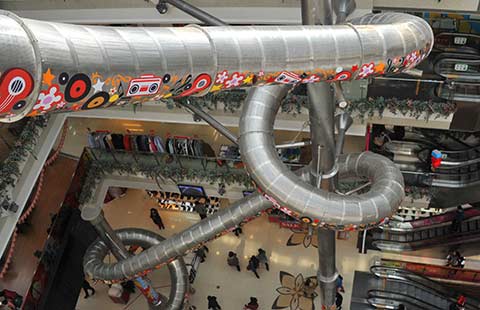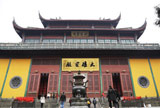TV gala exposure draws thousands to Anhui lane
By Zhu Lixin (chinadaily.com.cn) Updated: 2016-02-16 15:16
People have never been as interested in a small lane in Anhui province as they are nowadays.
During the week-long Spring Festival, which ended on Saturday, thousands overwhelmed Liuchi Lane in Tongcheng, a county-level city in East China's Anhui province.
For the visitors, a photo with the lane's name carved on a piece of stone would be enough to show off on their social media, because most would come up with a story being told for hundreds of years.
The lane, about 100-meters long east-west and 2-meters wide, is between two gray walls, both replicas of antique ones which had been on the site until being pulled down during the "cultural revolution" (1966-76).
In the name of the lane, "liu" means six while "chi" is a measure of length, the two words together means a length roughly equal to two meters nowadays.
To the south and north were mansions of two eminent households, the Zhang and Wu families, in the early Qing Dynasty (1644-1911).
The families both had male members who were high-level officials in the emperor's court or in other regions of the country.
The neighbors once quarreled over which of them could build a wall on the boundary of their domains. They took their claims to the then head of Tongcheng county but the official dared not offend either of the two families.
The Zhangs wrote to Zhang Ying, their most prominent family member and a trusted top official in Emperor Kangxi's court.
With a poem which is still very popular, Zhang refused to support his own family, while he proposed the latter step back one meter from the boundary.
It is said that the unexpected reply moved not only the Zhangs but also the Wus, both of whom gave up a meter of land and have since been in peaceful relationships.
- NE China Spring Festival gala goes nationwide
- Snapshots of this year's Baotou Spring Festival gala
- 'Happy Chinese New Year' gala kicks off in Mauritius
- Chinese Lunar New Year Gala held in New York
- Lunar New Year Gala at Columbia University
- London's Chinese New Year gala rings in Year of Monkey
- Rehearsal of CCTV 2016 Lunar New Year Gala
- Premier calls for action on economic issues
- China plans gravitational wave project
- Temporary pet care poses some hitches
- Domestic violence shelter will be a refuge of safety
- New draft raises the standards for public restrooms
- Future stars will need English to shine
- Crowds flock to see Olympic venue
- Online platform facilitates legal work
- China plans more gravitational wave research
- Getting into overseas students' good books







